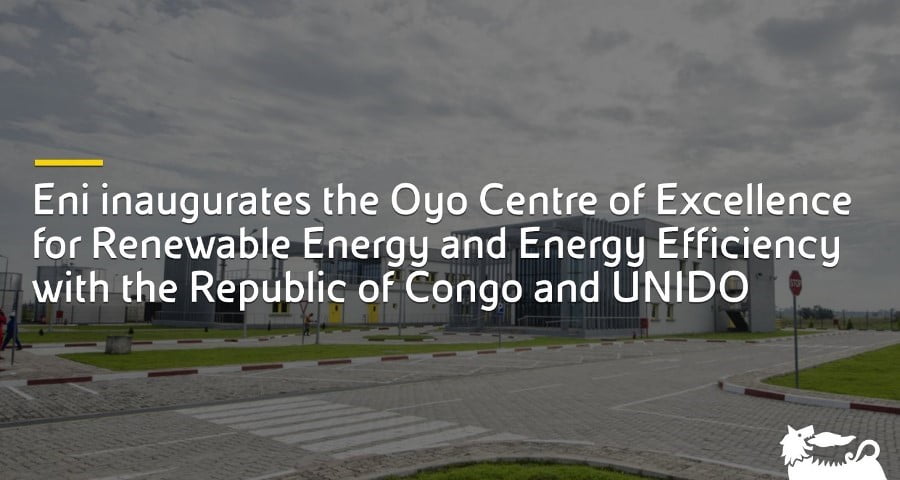Eni inaugurated the Oyo Centre of Excellence for Renewable Energy and Energy Efficiency, in the Republic of Congo. The Oyo Center builds on the agreement signed by Eni with the Republic of Congo in 2016 to valorize the country’s energy resources and will be available to its African neighbors and other countries around the world.
With its state-of-the-art technologies and facilities, including six laboratories, one conference hall, several meeting rooms and an open-air laboratory, the Center will host researchers from the Republic of Congo, other African countries and worldwide. Its work will focus on applied research and capacity building in the field of renewable energy, biomasses, and clean cooking solutions, contributing to the nexus energy-water-food that is fundamental for economic, environmental and social development.
Its ambition is to bring innovative solutions to Central Africa, becoming a key reference point for the energy transition in the region. To achieve this important goal, the Republic of Congo, Eni and UNIDO will collaborate to operate the Center under a 5-year strategic plan.
The inaugural event took place in the presence of many dignitaries including President Denis Sassou Nguesso, the UNIDO Representative in Cameroon and Central Africa, Raymond Tavares, and Eni’s CEO, Claudio Descalzi. The Prime Minister Anatole Collinet Makosso, the Minister of Hydrocarbons Bruno Jean Richard Itoua, the Minister of Energy and Hydraulics Emile Ouosso, and the Minister of Higher Education, Scientific Research and Technological Innovation Delphine Édith Emmanuel also took part in the event.
The April ceremony also marked the official handover of the Center to the Ministry of Higher Education, Scientific Research and Technological Innovation. Eni will continue supporting the initiative through technical assistance and major funding.
Eni has been present in Congo for over 50 years. To date, it is the only company committed to develop the country’s vast gas resources. It also supplies gas to the Congo Electric Power Station (CEC), which provides 70% of the country’s electricity production. Furthermore, the company is developing agri-feedstock production initiatives destined for biorefining and not in competition with the food supply chain.

